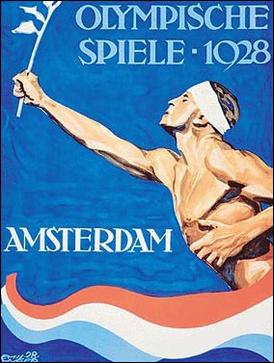
The 1928 Summer Olympics, officially the Games of the IX Olympiad, was an international multi-sport event that was celebrated from 28 July to 12 August 1928 in Amsterdam, Netherlands. The city of Amsterdam had previously bid for the 1920 and 1924 Olympic Games. Still, it was obliged to give way to war-torn Antwerp in Belgium for the 1920 Games and Pierre de Coubertin's Paris for the 1924 Games.
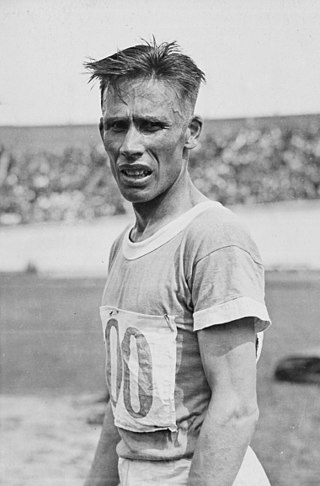
Vilho "Ville" Eino Ritola was a Finnish long-distance runner. Known as one of the "Flying Finns", he won five Olympic gold medals and three Olympic silver medals in the 1920s. He holds the record of winning most athletics medals at a single Games – four golds and two silvers in Paris 1924 – and ranks second in terms of most athletics gold medals at a single Games.

Sohn Kee-chung was a Korean-Japanese Olympic athlete and long-distance runner. He became the first ethnic Korean to win a medal at the Olympic Games, winning gold in the marathon at the 1936 Berlin Olympics. He was born in the Korean Peninsula, but he competed as a member of the Japanese delegation because Korea was under Japanese rule at the time. Sohn set an Olympic record of 2 hours 29 minutes 19.2 seconds.
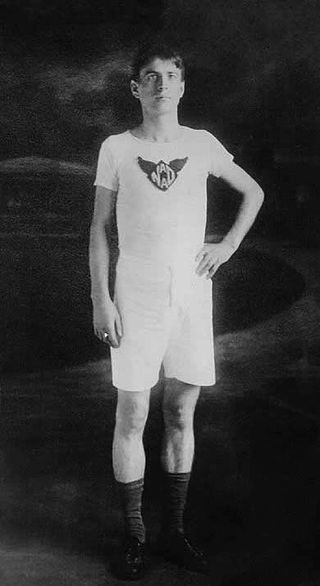
Clarence Harrison DeMar was a U.S. marathoner, winner of seven Boston Marathons, and Bronze medalist at the 1924 Paris Olympics. He was known by the nickname "Mr. DeMarathon."
Edgar Laurence "Dunc" Gray was an Australian track cyclist and Olympian.

Ugo Frigerio was an Italian race walker. He competed in four events at the 1920, 1924 and 1932 Olympics ranging from 3 to 50 km and won three gold and one bronze medals. He was the Olympic flag bearer for Italy in 1924 and 1932.
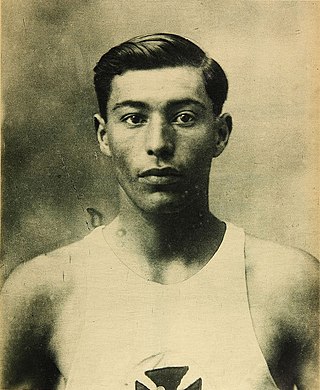
Manuel Jesús Plaza Reyes ( was a Chilean athlete who won the country's first Olympic medal. He earned a silver medal in the marathon at the 1928 Amsterdam Olympic Games, finishing with a time of 2 hours, 33 minutes, and 23 seconds, just 26 seconds behind French runner Boughéra El Ouafi. In the 1924 Paris Olympics, Plaza placed sixth.

Jack Beresford, CBE, born Jack Beresford-Wiszniewski, was a British rower who won five medals at five Olympic Games in succession. This record in Olympic rowing was not matched until 2000 when Sir Steve Redgrave won his sixth Olympic medal at his fifth Olympic Games.
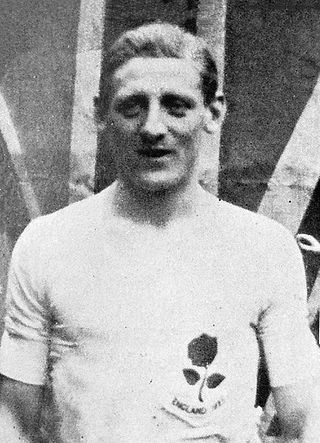
Ernest Harper was an English athlete who competed for Great Britain in the 1924, 1928 and 1936 Summer Olympics.

Walter Rangeley was an English athlete who competed mainly in the sprints. He was born in Salford and died in Glyndŵr.

John C. Miles, was a Canadian marathon runner. He won the Boston Marathon in 1926 and 1929.
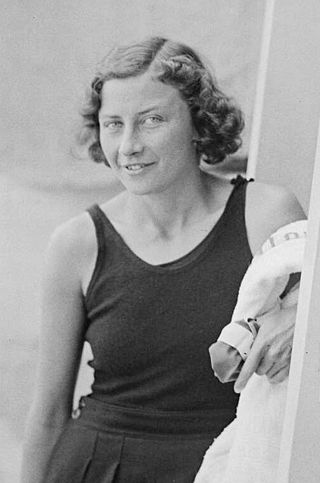
Margaret Joyce Cooper, later known by her married name Joyce Badcock, was an English competitive swimmer who represented Great Britain at the Olympics and European championships, and England at the British Empire Games, during the late 1920s and early 1930s.

Joseph William "Joie" Ray was an American track and field athlete and member of the United States National Track and Field Hall of Fame. He held world records for the 1-mile (1.6 km) and 2-mile (3.2 km) distances. He represented the United States in the three Olympic Games held the 1920s, winning a bronze medal for the 3000 m team race in 1924.
Hendrik Beltsazer Hart was a South African athlete who competed in the 1932 Summer Olympics.
Robert Scade "Scotty" Rankine was a Canadian athlete who competed in the 1932 Summer Olympics and in the 1936 Summer Olympics.

Harold Webster was a Canadian athlete who competed in the 1936 Summer Olympics. He was born in Newhall, Derbyshire, United Kingdom of Great Britain and Ireland. In 1936 he participated in the Olympic marathon event but did not finish the race. At the 1930 Empire Games he finished tenth in the 6 miles competition. Four years later he won the gold medal in the marathon contest at the 1934 Empire Games.
Donald McNab Robertson was a Scottish athlete who competed in the 1936 Summer Olympics.
Bernard James Rowe was an English freestyle sport wrestler who competed for Great Britain in the 1924 Summer Olympics and in the 1928 Summer Olympics.

The men's marathon event was part of the track and field athletics programme at the 1924 Summer Olympics, in Paris, France. The marathon was held on Sunday, July 13, 1924. It was only the second Olympic marathon to use the distance of 42.195 km which was first used in 1908 and is now the standard marathon distance. Fifty-eight runners from 20 nations competed, with no more than 6 runners per nation. The event was won by Albin Stenroos of Finland, the nation's second consecutive Olympic marathon victory.

The men's marathon at the 1932 Summer Olympics took place on August 7. It started and finished at the Los Angeles Memorial Coliseum. Twenty-eight athletes from 14 nations competed. The 1930 Olympic Congress in Berlin had reduced the limit from 6 athletes per NOC to 3 athletes. The event was won by Juan Carlos Zabala of Argentina, the nation's first Olympic marathon medal. Great Britain also earned its first Olympic marathon medal with Sam Ferris's silver, while Finland made the marathon podium for a fourth consecutive Games as Armas Toivonen won bronze.
















